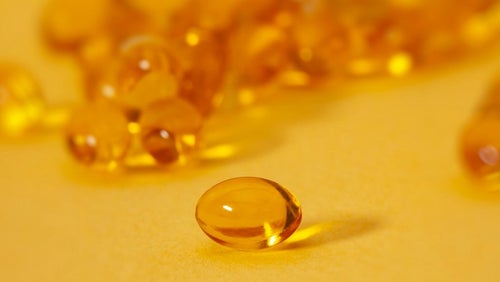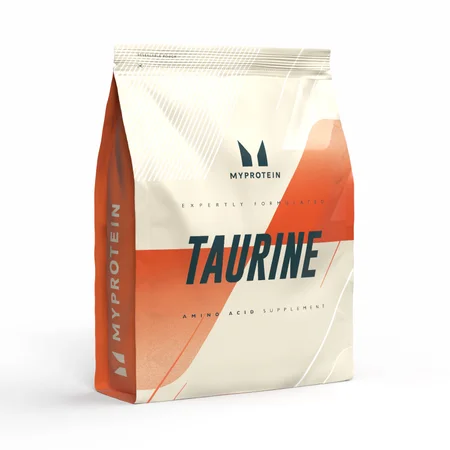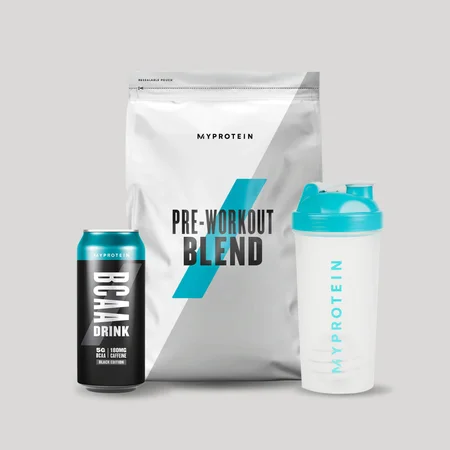What Is Taurine? | Taurine Benefits & Side Effects

If you’ve found taurine listed in the ingredients on your energy drink, you might be wondering exactly what it is and what it does. Unlike some of the other ingredients in that can, this isn’t some scary chemical, but an amino acid. Here’s everything you need to know about taurine.
What is taurine?
Taurine is an amino acid that occurs in some animal-based foods and naturally in some of our body’s tissues. Taurine makes up a large amount of the “free” amino acids that are circulating in the body instead of making up proteins.1
It contains sulphur, which makes it common in many of the body’s physiologic functions.1 Its role in many energy-related reactions makes taurine a common ingredient in energy drinks and related supplements.
Where does it come from?
Taurine occurs naturally in your body, but is also found in common animal-based food sources. The highest levels of taurine in food occurs in meat, fish, and dairy products.2
It’s considered “conditionally essential” to the human diet, meaning your body has some of its own, but benefits from getting even more from food.3 Poor health conditions are often associated with low levels of taurine, implying that it’s a crucial amino acid. It’s also found in lower levels as we age, meaning it might play a role in aging.
Taurine Sources
Taurine is found in high levels in many meat products, like beef, and dark meat poultry like turkey and chicken. High levels of taurine are in certain shellfish and seafood, like mussels, scallops, octopus and clams. Lower amounts of taurine are present in other meat foods like pork, as well as other types of fish and all dairy products. It is often a key ingredient in performance enhancing and energy boosting drinks because of its role in so many physiologic processes. Because taurine occurs naturally in many animal-based foods, it is often supplemented in vegetarian and vegan diets.
What does it do?
Taurine plays a role in many functions in muscle cells related to the movement of calcium ions as well as the process in which ATP, the cell’s energy molecules, are turned over.1
It also assists with the stabilisation of cell members, anti-oxidation (the process of protecting your cells from the damage of free radicals), regulation of fluid balance, and stimulation of glycolysis and glycogenesis (energy processes).
Simply put, taurine seems to be involved in many of the processes related to energy usage and muscle function. For this reason, researchers are fascinated with all of the possible impacts of taurine on exercise and performance.

Benefits of Taurine
1. Taurine impacts health
Taurine is considered a nutraceutical due to its many varied impacts on health, including treatment of fatigue and muscle and improvements in immune function.4
2. May impact muscle and performance
The most desirable potential impacts of taurine are related to performance and muscle, as a possible ergogenic (performance enhancing) aid.
So, can it really make you stronger and faster?
The proposed benefits of supplementing with taurine are related to its impact on performance and muscle tissue. One study tested running performance after supplementing with taurine but did not see significant improvement.4 However, elevated levels of taurine post-exercise were related to quicker recovery and less oxidative stress on the muscle tissue.4
3. May improve exercise performance
A more recent study built on the previous idea and showed significant improvement in performance during endurance exercise after just one single dose of taurine.5 This implies that body builders and cardio-based athletes may both benefit from taking it prior to their workout. Another study showed that muscles were able to sustain a greater load prior to contraction, meaning that muscles can sustain greater stress for longer periods of time.6
Taurine has great potential to help improve recovery after weightlifting by reducing the oxidative stress of exercise on the muscles post-workout. Although the previously mentioned study did not show significant performance enhancement of running, the subjects did show small increases in speed and decreases in heart rate, implying that they worked more efficiently after supplementation.4
4. Acts as an antioxidant and improves recovery
Taurine seems to act as a strong antioxidant that also improves the body’s own recovery response. So, it may work two-fold by preventing the damage and stress of exercise but also speeding up the muscles’ rebuilding. Because it’s a common ingredient in energy drinks, it was often thought that taurine in combination with caffeine was a requirement for ergogenic effects, however, a study that used taurine alone still showed a positive impact.
Research in the area of taurine supplementation is still new and limited to studies that focused on various groups of athletes in different sports and in different conditions. For this reason, the promising impact of taurine should be further investigated to help better advise athletes how to make it most useful for them.

Taurine supplements | Safety & dosage
Safety
None of the research studies showed any negative side effects of taking taurine, but any supplement may impact other medications or health conditions.
It’s always best to speak with your doctor before starting out with a new supplement.4
Side Effects
Dosage
The study that showed endurance benefits from taurine had varied recommendations between 1 and 6 grams in a single dose.5
Due to its presence in many animal-based foods, it may be necessary in larger amounts for vegetarians or vegans. It may also show a greater effect in these populations if they typically function with sub-optimal levels of taurine and then begin to supplement.
Take home message
Taurine is a simple way to boost your supplement needs with potential performance improvements and definite impact on speeding up muscle recovery. It has strong antioxidant properties, even when not used in conjunction with caffeine.
Its decreasing levels as you age means that supplementation may even help reduce some of the negative effects of the aging process.
READ THESE NEXT:

Energy-Boosting Supplements | The Best Vitamins And Blends To Fight Fatigue
All the best supplements to fight fatigue.
Should You Be Taking BCAAs Before Bed?
Are you getting the most of your BCAAs? Let our expert give you the low-down on this supplement.

High Protein Shakes To Boost Your Daily Intake & How To Make Them
Your daily protein shake will never be boring again.

Claire is a Registered Dietitian through the Academy of Nutrition and Dietetics and a board-certified Health and Wellness Coach through the International Consortium for Health and Wellness Coaching. She has a Bachelor of Science in Biology and a Master’s degree in Clinical Dietetics and Nutrition from the University of Pittsburgh.
Talking and writing about food and fitness is at the heart of Claire’s ethos as she loves to use her experience to help others meet their health and wellness goals.
Claire is also a certified indoor cycling instructor and loves the mental and physical boost she gets from regular runs and yoga classes. When she’s not keeping fit herself, she’s cheering on her hometown’s sports teams in Pittsburgh, or cooking for her family in the kitchen.
Find out more about Claire’s experience here.






